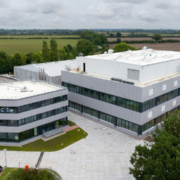Researchers at Sorbonne Paris have discovered that a membrane protein in adipocytes of obese mice and humans changes the lipid composition of adipose tissue macrophages rendering them more inflammatory and reducing insulin resistance.
ADVERTISEMENT
The Society for Laboratory Automation & Screening (SLAS) has selected the European Biotechnology Magazine as its official media partner.
New AI tools and drug screening based on human cells and organoids promise a quantum leap in the success rate of drug development and in the processing of data from high-throughput analyses as well as a revolution in diagnostics. The SLAS Europe 2024 conference in Barcelona highlighted the latest advances set to transform the entire biopharma sector.
The study of G protein-coupled receptor (GPCR) signalling is crucial for understanding a wide range of physiological processes. Among the methods used to monitor calcium signalling, Aequorin stands out for its high sensitivity, specificity, and sub-cellular compartment targeting. While many CROs are still using fluorescent calcium dyes, EuroscreenFast is making use of Aequorin’s unique properties as an invaluable tool to delve into the complexities of cellular communication.
Monoclonal antibodies still dominate the US$417bn biologics market. After decades of development, however, improved antibodies and protein formats with better target selectivity and safety profiles are now hitting markets and pipelines. A range of bispecific antibodies and antibody-drug conjugates – along with CAR-Ts, TCR-RTs and NK cell-based immunoreceptor constructs – were in focus at the PEGS Europe Summit.
Recombinant protein production in Pichia typically relies on AOX1 promoter-driven expression using methanol for induction. However, some companies avoid methanol due to safety concerns or operational demands. VALIDOGEN’s unique AOX1 promoter variants enable methanol-free protein production at high space-time yields, offering advantages beyond safety. Latest case studies underscore the strength of this technology.
Messenger RNA (mRNA) has gained significant attention since being used in the Pfizer-BioNTech and Moderna COVID-19 vaccines. mRNA holds potential for preventing and treating many difficult-to-treat or genetic diseases, including cancers. However, its production is complex and raises challenges for researchers developing new therapies: Discover Tebubio.
The U.S. House of Representatives recently passed the BIOSECURE Act, prohibiting U.S. biopharma companies from working with Chinese contractors due to national security concerns, including data leaks and intellectual property theft. The Act is expected to pass the Senate.
At a recent event researcher and founder of Bit.bio, Prof. Mark Kotter, Babraham Research Campus in Cambridge/UK, was asked what healthcare looks like in 2050. He gave a twofold answer, that it will be driven by data, but also will be personalised. Mark Kotter elaborates here in more detail what is needed to unlock a healthcare of tomorrow.
Professionalism and quality are always at the forefront along the whole value chain: from gene to product. To pro-actively meet the evolving demand of the market to produce new assets Richter-Helm significantly increased its manufacturing capacities for biopharmaceutical products at its production site in Bovenau, Germany.


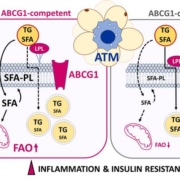 Wilfried Le Goff (INSERM, Sorbonne Université)
Wilfried Le Goff (INSERM, Sorbonne Université)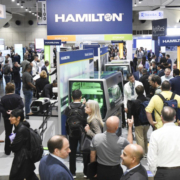 SLAS
SLAS SLAS - Alexandra Csuport Photography
SLAS - Alexandra Csuport Photography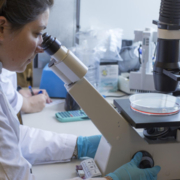 EuroscreenFast
EuroscreenFast BIOCOM
BIOCOM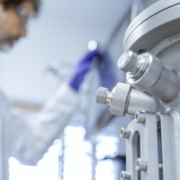 VALIDOGEN
VALIDOGEN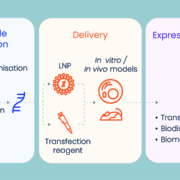 Tebubio SAS
Tebubio SAS Jeremy Levin, Ovid Therapeutics
Jeremy Levin, Ovid Therapeutics
